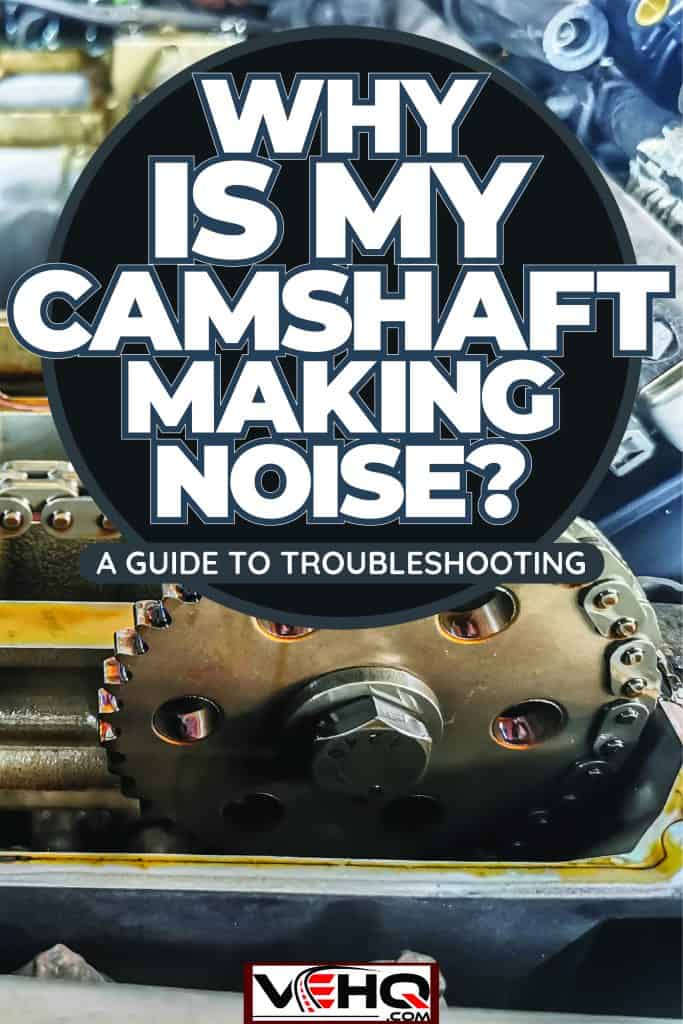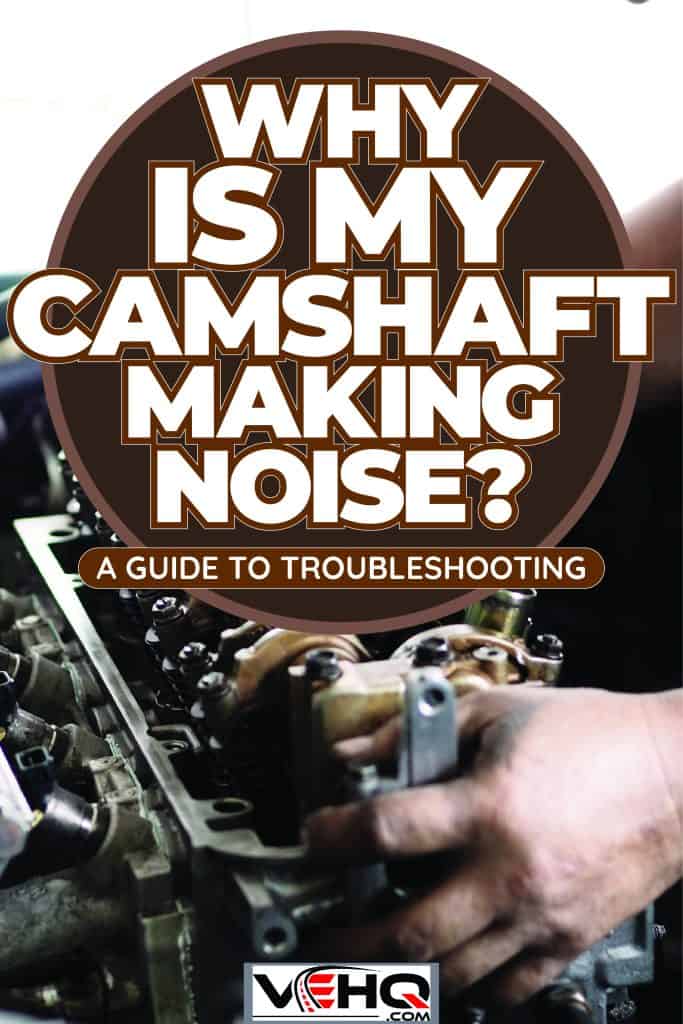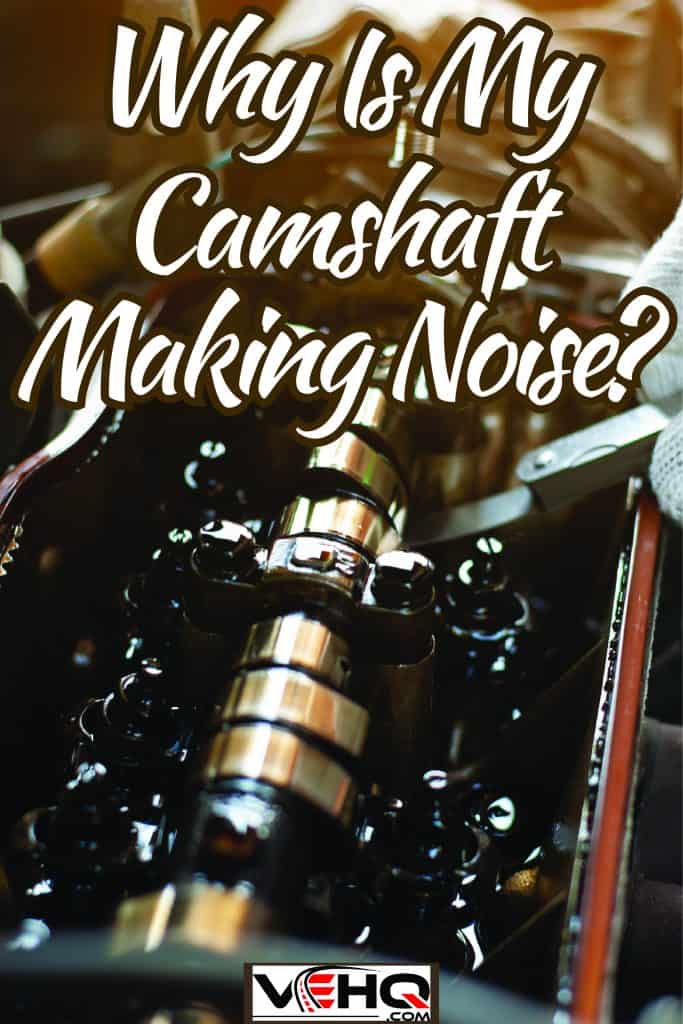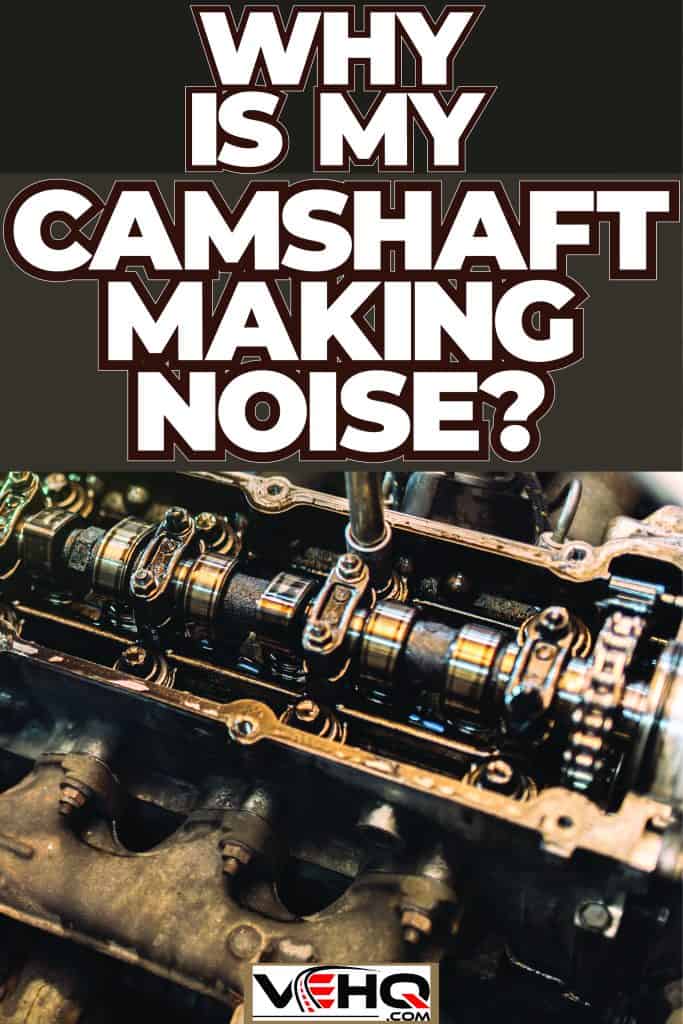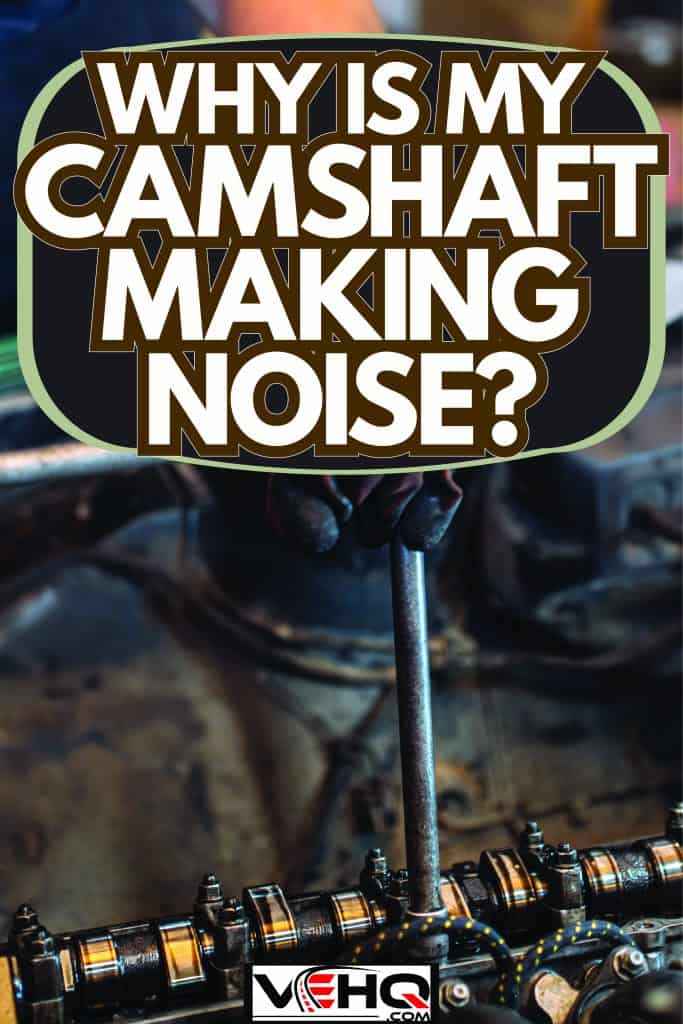Is your car making strange noises that you can't quite put your finger on? It's a common problem that many car owners face, and one of the most perplexing noises is camshaft noise.
But don't worry, we're here to help you get to the bottom of it.
In this article, we'll take a deep dive into the possible reasons behind camshaft noise and provide you with useful information on how to address the issue.
We'll explore the role of the camshaft in your car's engine and how it controls the opening and closing of the valves.
So, if you're ready to learn more about the possible causes of camshaft noise and how to keep your engine running smoothly, then join us for this insightful journey.
We promise to not only enhance your automobile knowledge but also provide you with a handy guide for future troubleshooting when faced with camshaft noise.
And most importantly, we'll make sure you have a fun and engaging experience from start to finish. Let's get started!
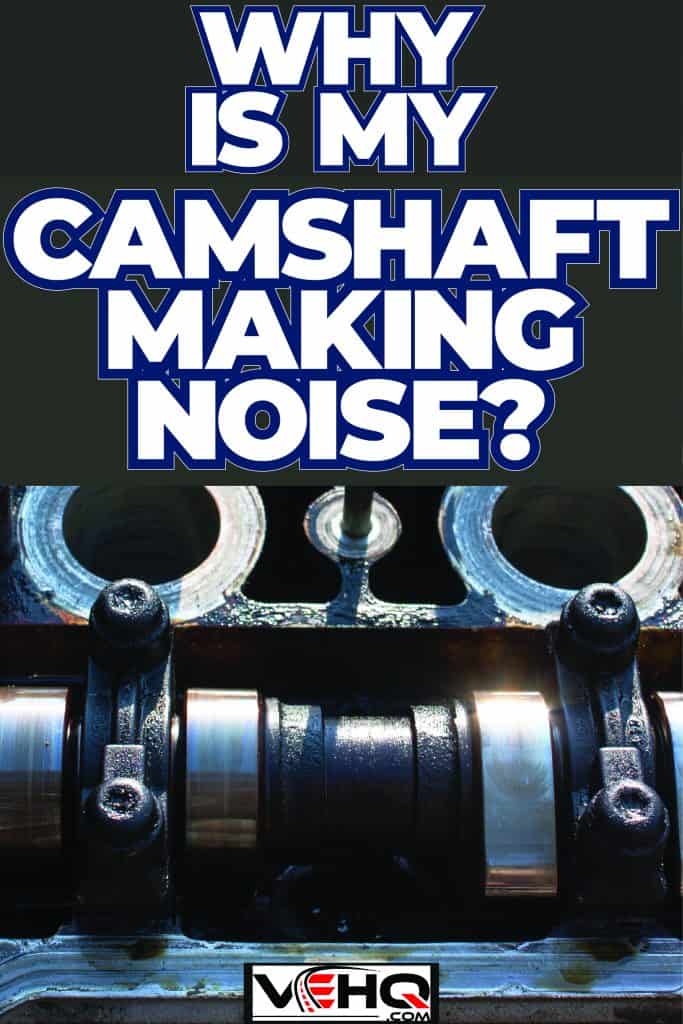
Why Is My Camshaft Making Noise?
Causes of Camshaft Noise
One reason your camshaft might be making noise is due to worn or damaged camshaft lobes. Such wear can lead to tapping noises in the engine's upper region.
Another culprit could be a bad cam phaser, which may create rattling noises and cause performance issues.
Issues in the valvetrain may also contribute, such as insufficient engine oil that causes poor lubrication.
This can lead to increased friction and noise from components like rocker arms, pushrods, and tappets.
Identifying a Bad Camshaft
To identify a bad camshaft, listen for tapping or ticking noises coming from the engine's upper region or rattling noises potentially caused by a failing cam phaser.
If the camshaft is suspected to be at fault, it's important to have a professional inspect the engine and check for any collateral damage in parts, such as the engine head and timing gear.
Remember, prompt action can prevent further complications and save on costly repairs.
To sum it up, camshaft noise can stem from various factors, such as damaged lobes or a bad cam phaser.
Proper maintenance and timely intervention are crucial to ensure smooth engine operation and prolong the life of your vehicle.
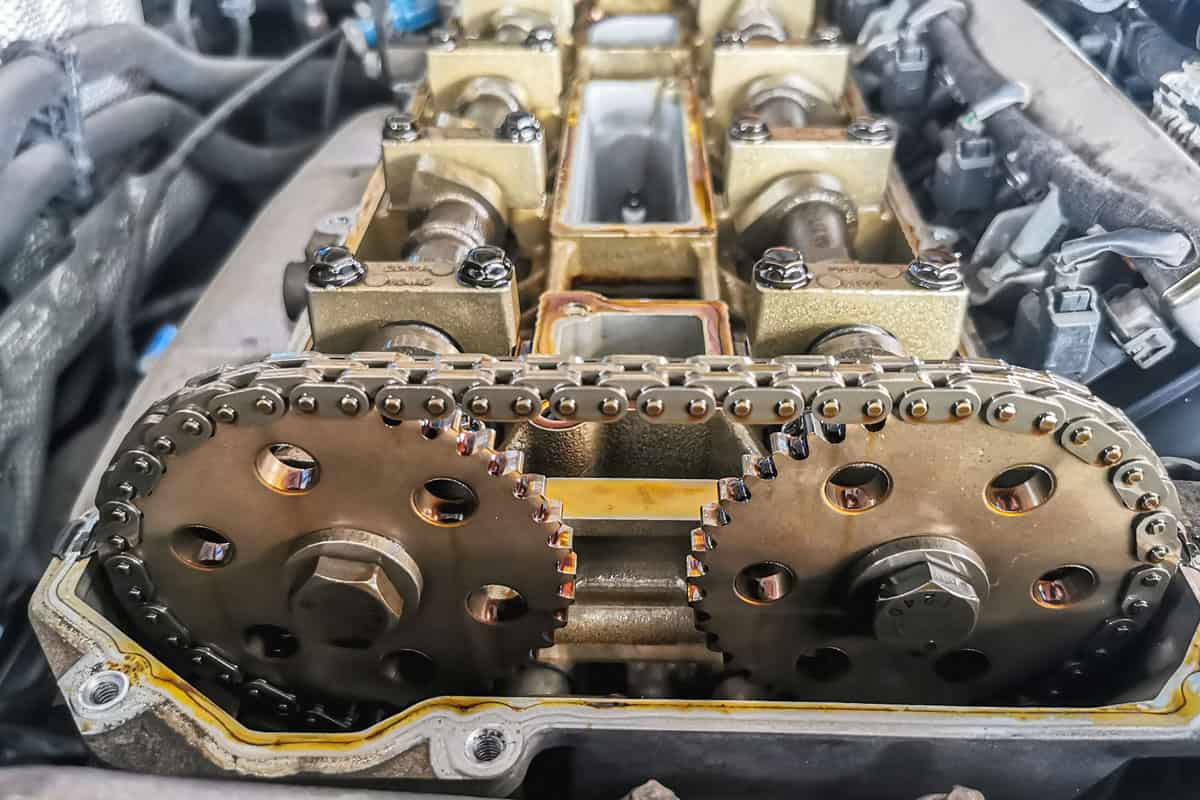
Camshaft Repair and Replacement
Repair Possibilities
If you are experiencing noise from your camshaft, there could be a few possible causes that need to be addressed.
Some common reasons for camshaft noise include worn lobes, damaged lifters, bad bearings, or even a broken camshaft.
Depending on the specific issue, the engine components like valves, lifter, tappet, pushrod, rocker arm, or clearance may require some attention or adjustments.
One possible repair method is to adjust the valve clearances or perform proper lubrication. In some cases, it might be necessary to replace worn bearings, timing components, or even fix a leak or two.
Proper service and care of engine tappets, cam followers, and pushrods can also play a crucial role in maintaining the camshaft's health and reducing noise.
Costs and Options
When it comes to camshaft repair or replacement, the costs can vary significantly based on the engine type and labor rates in your area.
While minor adjustments and lubrication may not be very expensive, replacing components like the lifters or camshaft can be a considerable expense, sometimes reaching a few thousand dollars or more.
If the camshaft itself is damaged and cannot be repaired, a replacement will be necessary.
The price of a new camshaft can range from a few hundred dollars up to thousands, depending on the make and model of your vehicle.
In addition, labor costs for camshaft repair or replacement can be substantial, so it's essential to weigh the options and get multiple quotes from different mechanics before making a decision.
To summarize, camshaft noise can be caused by various factors, which can often be addressed through proper repairs, adjustments, or replacement of specific engine components.
Being proactive with maintenance and seeking professional advice when needed can help keep your engine running smoothly and noise-free.
Camshaft Function and Lifespan
The camshaft is a key component in your car's engine that plays a crucial role in dictating its power and performance.
It is responsible for controlling the opening and closing of the valves, thus controlling the flow of air and fuel mixture into the combustion chamber.
Understanding the camshaft's function and lifespan can help to ensure your engine runs smoothly, efficiently, and reliably.
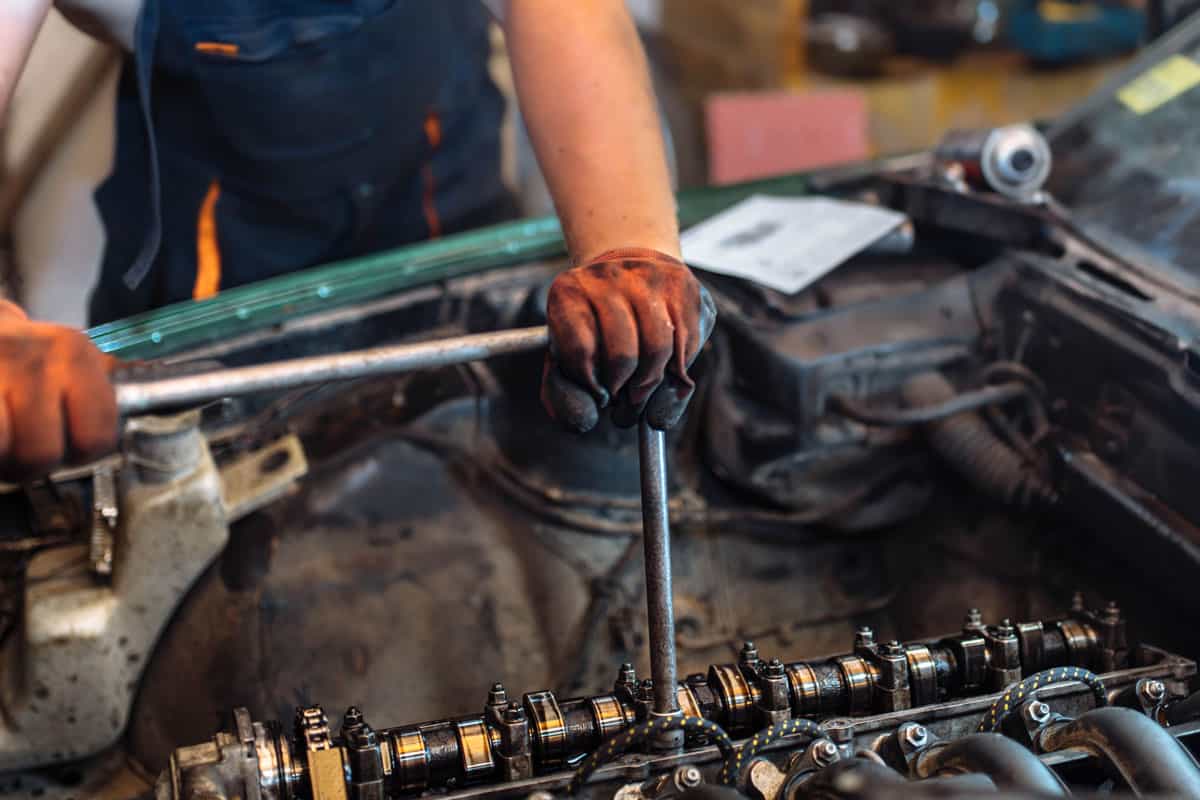
Can a Car Run Without a Camshaft?
The short answer is no, a car cannot run without a camshaft. The camshaft is essential for controlling the engine's timing, which ensures the proper air and fuel mixture is delivered at the right moment.
Without a camshaft, the engine would not function and the vehicle would be unable to move.
How Long Do Camshafts Last?
The lifespan of a camshaft varies depending on several factors, including the make and model of the car, the quality of the camshaft materials, and the type of engine.
Generally, camshafts can last about 80,000 miles or more.
Regular engine maintenance and proper care can extend the life of your camshaft, ensuring optimal performance throughout its service life.
To prevent issues such as noise, it's essential to be vigilant and attentive to the symptoms of a failing camshaft.
Things to look out for include reduced engine power, misfire, and abnormal noises. Timely intervention can prevent further damage and costly repairs, keeping your car running smoothly for years to come.
Remember, the camshaft plays a pivotal role in your car's engine, and understanding its function and lifespan is key to maintaining optimal performance on the road.
Regular maintenance and inspections can help to ensure the longevity of your camshaft and the smooth operation of your engine.
Camshaft Maintenance Tips
A well-maintained camshaft helps keep your engine running smoothly. Ensuring proper lubrication is crucial for camshaft health.
Regularly check and replace engine oil to prevent noise caused by worn parts.
Select the right oil viscosity for your engine type. The wrong viscosity may affect valve movement and create noise.
Additionally, consider using oil additives that improve lubrication and reduce friction.
Replace your oil filter regularly. A clogged filter compromises optimal lubrication, leading to bearing wear and noise.
Ensure proper clearance between the camshaft's components. This includes tappet, pushrod, and rocker arm clearances. Adjust valve clearance using a feeler gauge and valve adjustment screws.
Regularly inspect and maintain the timing chain and pulleys. Improper timing may cause the valves to open and close incorrectly, resulting in camshaft noise.
Keep an eye on valve lift, stem condition, and valve adjustments. Properly functioning valves ensure smooth camshaft operation and prevent unnecessary noises.
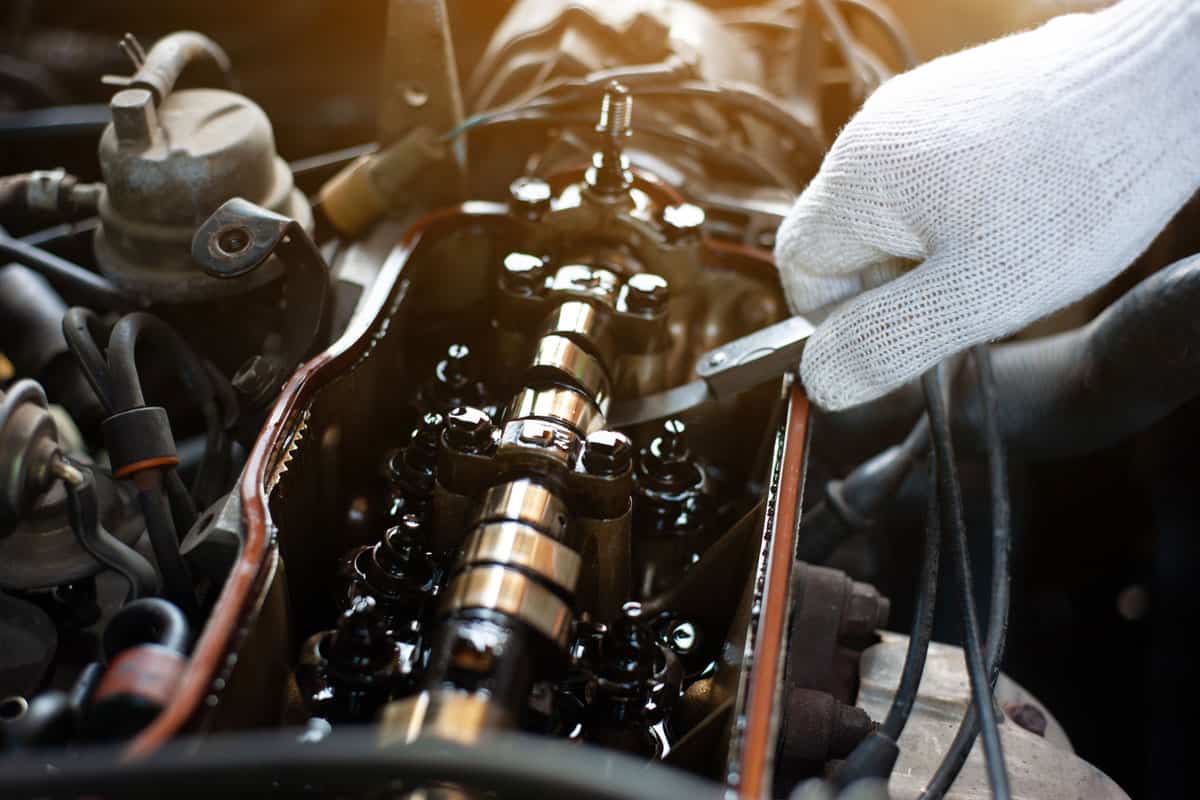
By following these camshaft maintenance tips, your engine will operate efficiently and quietly, allowing you to enjoy a pleasant driving experience.
Remember, proper care and attention prevent camshaft noise and extend your engine's life.
Check out some of our previously written articles before leaving:
Does Your Camshaft Sensor Affect Your Fuel Pump’s Performance? Find Out Now

